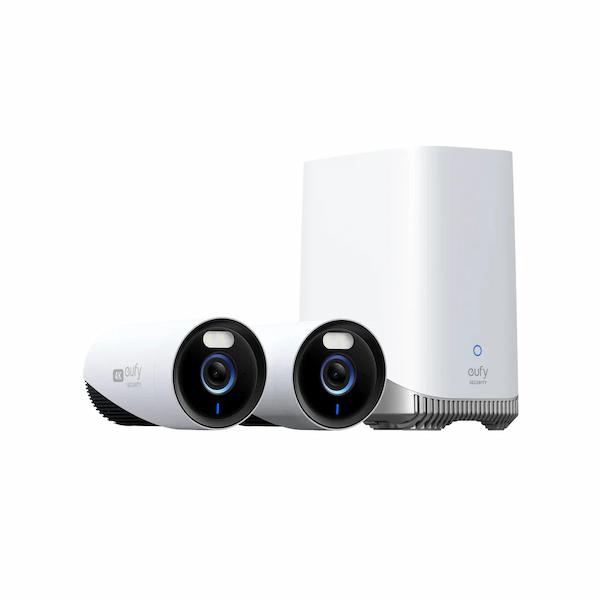Home security is a top priority for many homeowners, and understanding how your security cameras operate is crucial. A common question is whether home security cameras record all the time. This article will address this question, highlight the benefits of continuous recording, discuss factors affecting recording time, and help you determine if you need a camera that records 24/7.

Do Security Cameras Record All the Time?
The short answer is: it depends. Not all home security cameras record continuously. The recording method depends on the camera type, its settings, and your preferences.
Continuous Recording: Some security cameras are designed to record 24/7. These cameras ensure you never miss any activity around your home. Continuous recording requires a robust storage solution and a reliable power source.
Motion-Activated Recording: Many home security cameras record only when motion is detected. This method conserves storage space and makes it easier to review footage. However, it may miss some events that occur outside the camera’s detection range.
The E330 eufyCam is an ideal solution for those seeking continuous recording, providing reliable 24/7 surveillance that captures every activity without interruption. This camera boasts high-resolution video quality, advanced night vision capabilities, and long-lasting battery life with options for continuous power. Additionally, it offers local storage which eliminates the need for cloud subscriptions, making it a cost-effective and secure choice for comprehensive home security monitoring.

What Are the Benefits of Home Security Camera Recordings?
Home security camera recordings offer a range of benefits that can enhance safety, provide peace of mind, and even aid in legal matters. Here are some of the key advantages:
Deterrence of Criminal Activities: The presence of security cameras can deter potential burglars and intruders. Knowing that their actions might be recorded makes criminals think twice before committing any illegal acts near your property.
Real-Time Monitoring and Alerts: Modern security cameras often come with live monitoring capabilities, allowing you to watch the footage in real time through smartphones or other devices. They can also send alerts when suspicious activities are detected, enabling immediate action or quick notification to law enforcement.
Evidence Collection: In the event of a crime, video recordings serve as crucial evidence that can help law enforcement identify the perpetrators and understand the sequence of events. This can be instrumental in solving crimes and prosecuting offenders.
Insurance Claims: Security camera footage can be used to substantiate claims for home insurance. If theft, vandalism, or other incidents are recorded, this evidence can help ensure a fair claim process.
Monitoring of Visitors and Deliveries: Cameras can help you keep track of who comes to your door, which is especially useful for verifying visitors, monitoring delivery persons, and ensuring that parcels are dropped off and picked up as intended.
Enhanced Family Safety: For families with young children or elderly members, security cameras can monitor their well-being and ensure they are safe at home. Cameras can also keep an eye on caregivers or service personnel who might be in the home.
Remote Access to Home Activities: When away from home, be it during a vacation or at work, security cameras allow you to check in on your property remotely, offering peace of mind by letting you see that everything is secure.
Improved Business Security: For home-based businesses, security cameras help in safeguarding assets, monitoring employee activities, and verifying transactions, which is crucial for both safety and operational efficiency.
Night Vision Capabilities: Many modern cameras are equipped with night vision, providing clear video footage even in extremely low light conditions, ensuring around-the-clock surveillance.
Cost-Effective: With technological advancements, the cost of home security systems, including cameras, has become more affordable for a wider range of households. The investment in such a system often pays for itself through the security and savings it provides in preventing potential losses.
Factors That Affect the Recording Time
Several factors influence how long your security cameras can record. Understanding these factors can help you optimize your system.
Storage Capacity: The amount of storage available is a primary factor. Larger storage capacity allows for longer recording times. Consider using external hard drives or network-attached storage (NAS) systems.
Resolution and Frame Rate: Higher resolution and frame rates produce clearer images but require more storage space. Balancing quality and storage is essential for optimal performance.
Compression Technology: Advanced compression technologies like H.265 can reduce the size of video files without compromising quality, extending the recording time.
Recording Mode: Continuous recording uses more storage than motion-activated recording. Choose the mode that best suits your needs and storage capabilities.
Do I Really Need a Camera That Records All the Time?
Deciding whether you need a camera that records continuously depends on your specific security needs and circumstances.
High-Risk Areas: If you live in a high-risk area or have valuable assets to protect, continuous recording provides the most comprehensive surveillance.
Detailed Monitoring: Continuous recording is beneficial for monitoring activities in real-time and reviewing events in detail later.
Storage Considerations: If you have sufficient storage and power supply, continuous recording is a viable option. However, if storage is limited, motion-activated recording might be more practical.
Conclusion
In conclusion, while not all home security cameras record all the time, continuous recording offers significant advantages in terms of comprehensive surveillance and peace of mind. The E330 eufyCam is an excellent option for those who prioritize 24/7 recording. Understanding the benefits, factors affecting recording time, and your specific needs will help you choose the best security camera system for your home.
FAQ
How long do security cameras keep footage?
The duration for which security cameras keep footage depends on the storage capacity and recording settings. Typically, footage can be stored from a few days to several weeks. Some systems allow for archiving important footage for longer periods.
How to tell if a security camera is recording?
To determine if a security camera is recording, look for indicators such as blinking lights or check the camera’s app for recording status. Many cameras also have notifications or status screens that indicate active recording.


